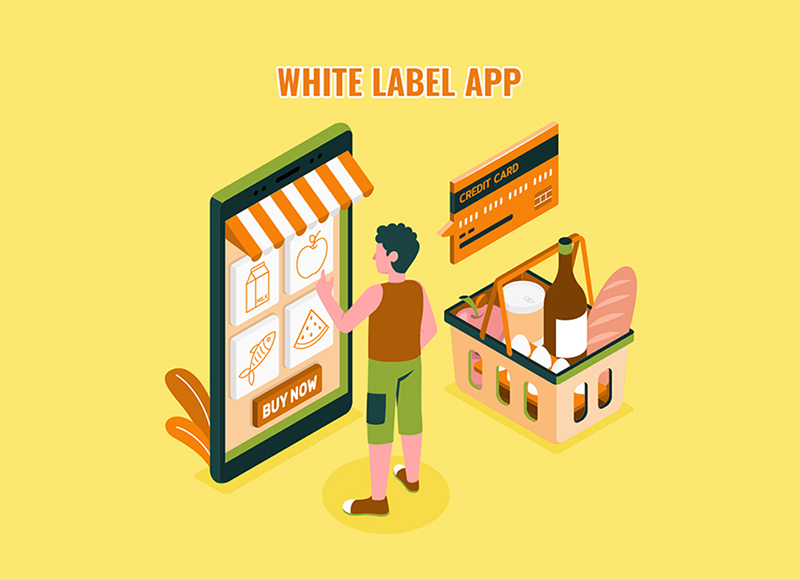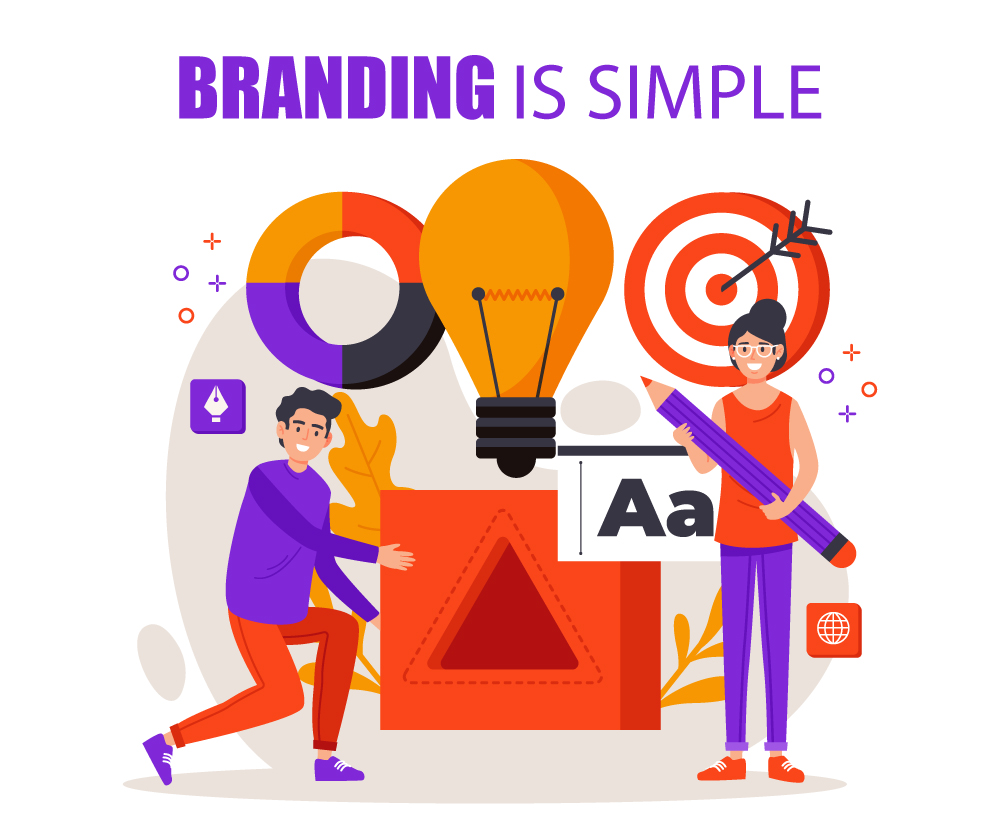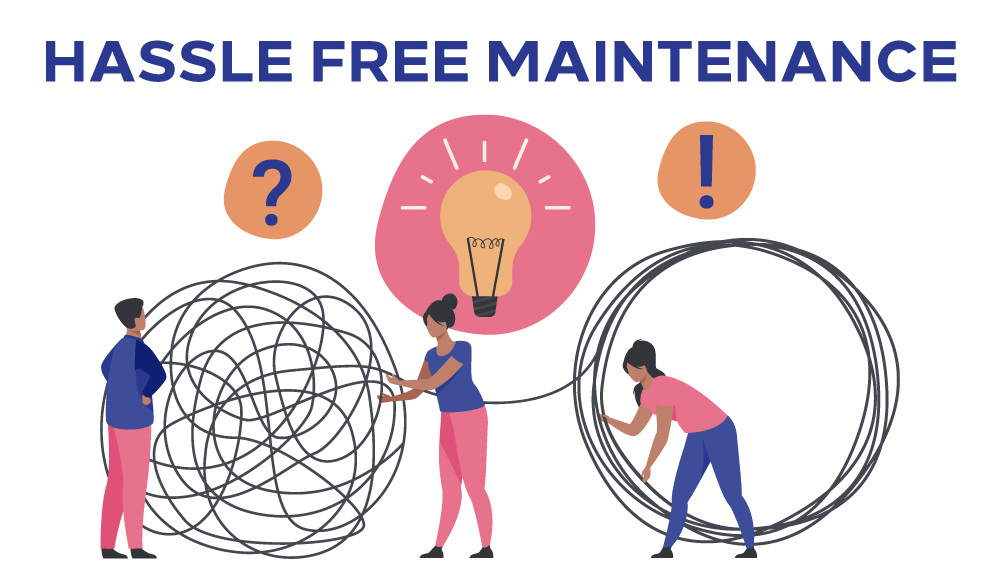- Home
- Blogs
White Label App Development: Its Cost & Advantages
What would you do if you want to start a business of your own? Let’s say you want to start a laundry service in your city and streamline it digitally using an app. Sure enough, it is a small business venture with the potential of being something big in th

What would you do if you want to start a business of your own? Let’s say you want to start a laundry service in your city and streamline it digitally using an app. Sure enough, it is a small business venture with the potential of being something big in the future.
You have two choices at the moment. Firstly, invest in developing a custom app by hiring in-house app developers or outsourcing it to a professional only mobile app development company, or secondly purchase a white-label app that is a ready-made solution to launch your business.
White label mobile app development enables successful businesses to easily start offering a service outside of their core competencies – without the technical or infrastructure know-how required.
What is a White Label App?
A white label app is basically a mobile solution that an app development agency builds from the ground up with an objective to sell to businesses belonging to the same niche. The businesses can then integrate their own features and APIs to personalize the app and launch it as an exclusive product of their own.
The primary objective of building a white label app is to help small businesses and startups enter the mobile app market and engage their target audience without burning a hole in their wallet.
Most white-label apps are created for the entire industry, for example, groceries delivery apps would have some set standard of features and everyone venturing into this business will require those. So white-label mobile app developers might create a generic framework for a groceries delivery app.
Hence, rather than creating an app from scratch, a business owner can opt for a ready-made solution and simply rebrand it by adding a few features or altering the UI. This way the company can launch its own mobile application and avoid the hectic development process. Not to mention, choosing a white-label app will also help the business owner step into the mobile app market without waiting for several months.
However, quick deployment and cost-effectiveness aren’t the only reasons behind the popularity of white-label apps. They also offer several additional benefits that make white-label apps a smart investment for small-scale businesses. In this article, we’ll look at some of the most promising advantages of white-label apps.
Advantages of White Label Apps

1. Easy on pocket
This is one of the main selling points of white-label apps. Startups and businesses using Software-as-a-Service (SaaS) mostly rely on white label apps as they are cost-efficient in the long run.
Purchasing a ready-made app solution is far less expensive than developing a custom app. If you want to create a custom app, you’ll have to hire a dedicated development team, which can often become an expensive option for small-scale businesses. Even if you decide to outsource app development to a third-party agency, you’ll have to invest in research, validation, development, and app maintenance. All these factors can make custom app development an expensive venture and drain your financial resources.
On the other hand, white-label mobile apps only cost a fraction of the overall capital required to build a custom app from the ground up
2. Instant Deployment

As you are not initiating the development process of the app, you have no burden to oversee the development process. It is either pre-made or managed by a third party. All you need to concern yourself with is getting a result that meets your requirements.
Assume you engage a mobile app development company In India to create a custom app. You’ll have to try to understand their work environment and assign dedicated resources to track the project's progress. This will only cause more stress and restrict you from focusing on the core business operations.
If you purchase a ready-made white-label app from a reputable provider, you won’t have to bother about project management. Furthermore, you have the added advantage of using a time-tested product backed by the professional expertise of app developers.
3. Branding is simple.

Let’s address the other obvious advantage of white label apps: branding is quick and simple. White label solutions are designed for resellers to customize and rebrand as they deem fit.
This could mean incorporating it into your existing business by putting your branding on it or using it as a launching pad for your brand-new venture. It’s essentially a pre-made template for selling a business service; it doesn’t get any simpler. Because you’ll employ a tried-and-true strategy, you won’t have to waste time and money on research and development. Put your stamp on it and get down to business.
4. Lesser time to market
The time it takes to decide to construct a custom app and the time it takes to launch it could be months or even a year. No one can predict with surety what market trends will be at that time and how advanced your competitors might be. We are two years deep in a pandemic and god knows how many businesses had their planning failed as these are completely unprecedented times we are facing.
Mobile app development is a time-consuming process that involves several stages. While you’re working on the app, your competitors might have already gotten their first thousand or so downloads.
Instead of taking the risk of falling behind, organizations opt for white-label apps. The software is already constructed; all you have to do now is purchase it and alter it slightly to place it under your company’s name. You can cut short the time to market by months with this approach.
5. Hassle-free maintenance

The app will be supported and maintained by your white label app developer. This relieves you of a lot of obligations and ensures that everything is done appropriately. This post-release maintenance is critical since any issue in the early releases may necessitate changing the code.
These white-label app distributors typically have a specialized staff of developers and quality assurance professionals that monitor the app’s performance. If there are any technical issues, simply notify the seller, and their team will handle the rest.
On the contrary, maintaining a custom app is an ongoing process. You have to maintain a team of developers and a QA/testing to address any issues and release patches for fixing bugs regularly.
6. Progressive market
Venturing into mobile apps development in India is unquestionably profitable. While large enterprises have long been part of the mobile revolution, small businesses still want some guidance in this mobile-first era to make this transition. In fact, according to Clutch, although less than half of small businesses have launched their own mobile application, SMBs are quickly adopting mobile apps as their standard asset for the business. Overall, white labeling is a fantastic way for firms or entrepreneurs to tailor their products to their customers’ demands and deliver a high-quality, personalized product.
7. Lesser risk of failure
Because third-party developers are held accountable for any errors, white-label apps lower the risk of failure. This means that your investment is safe, and all you have to do is sit back and enjoy all of the benefits of a wonderful tool while leaving the troubleshooting to the third-party developer. White label apps provide you with the unique opportunity to test them out before deciding if they are right for your company. Ascertain that your provider allows you to completely test the app, and question the level of customization possible to better suit your business demands.
How Much Does It Cost To Develop A White-Label Mobile App
The price of white-label app development depends on various factors like geography, experience, and the size of white-label app development companies. However, building a single-platform(iOS or Android) white label app with basic features might cost you around $ 15,000 to $ 35,000 at average hourly rates of $ 50 to $ 99. But if you want to add additional features & functionalities and build the app for multiple platforms, the price can easily exceed $ 60,000.
Is a White Label App Worth its Cost?
A white-label app allows you to build on the shoulders of other developers and manufacturers. With its assistance, you can deliver wonderful products to your clients while attempting to preserve a high ROI on a consistent basis. More importantly, it eliminates the costly and time-consuming process of creating and designing an app from the ground up.
Although there are some legit benefits of White-label apps, they do limit the entrepreneurs when it comes to customization, user experience, scalability, and security.
The fact that the apps coming in from one vendor had a similar directory type was the number one reason for Apple’s rejection of White Label solutions. Although this decision was soon amended as many small businesses would lose their apps. However, both App Store and Google Play Store have strict policies regarding copied apps. With the exception of 20% trademark elements, there was little difference in terms of design and flow.
With White Label, you must always make do with the design that the vendor has chosen for you, with little to no room for your own unique ideas.
Conclusion
As consumers are becoming more and more dependent on smartphones, mobile app adoption is increasing year after year. It’s easy to understand why your customers might desire a mobile app for their company. Mobile applications may assist your clients in building a stronger brand, increasing customer loyalty, and gaining a competitive advantage.
Indeed, white-label app development has simplified things for individuals who wish to create a mobile app in less time with fewer resources. One can start a business in no time using this technology. If you want to establish your business quickly and make a lot of money, white-label app development is the way to go.
Author Bio:
Ranjit Singh is the founder & Director of RV Technologies and has been an avid technical blog writer, too. His passion for business and writing informative articles on mobile app development is commendable. With years of experience in the IT industry, he has brought up the best marketing solutions through app development that guide you at every step.

